Systems to Improve Your Indoor Air Quality

The Importance of Clean Indoor Air
How to Improve Your Indoor Air Quality
Replace your HVAC system air filters regularly.
Lancaster Heating and Cooling includes air filter cleaning for your HVAC system in our maintenance packages. One-inch media air filters should be replaced every 30 days. Four to five-inch wide, high-efficiency media filters should be replaced every 6 months to a year to maintain dust and allergen-free air(there are some exceptions: smoking, candles, pets, fireplace, cooking with oils, remodelling/construction, high-volume traffic – with these applications a filter may need to be replaced more often).
Install carbon monoxide sensors.
Carbon monoxide is an odourless, colourless, and tasteless gas released by stoves, furnaces, wood-burning fireplaces, and gas or kerosene space heaters, among other sources. Carbon monoxide can cause headaches, fatigue, nausea, and impaired coordination. Installing several carbon monoxide detectors on every level of your home can protect your family’s health.
Bring fresh air into your home.
Opening the windows in your home in the early morning and late afternoon allows for more air to flow through your home, helping to reduce the buildup of noxious odours. Energy and Heat Recovery ventilators can bring fresh air into your home by using an efficient transfer of heat and moisture.
Control Dry Air.
Dry air can make your home both uncomfortable and unhealthy. A whole-home humidifier can help. They are installed as part of your home’s heating and cooling system while automatically delivering the perfect amount of humidified air throughout your space.
Control Excess Humidity.
Excess moisture in your home can cause musty odours, make you uncomfortable, and damage your home. It can also impact the health of your family! Whole-home dehumidifiers remove excess humidity from your home and run more efficiently than portables. The life expectancy of a whole home dehumidifier is also three times as long as a portable dehumidifier.
Purify the air in your home.
Ultraviolet Germicidal and Photo-Catalytic Air Purifiers can be installed as part of your home heating and cooling system to control-Bioaerosols-viruses, bacteria, mould, and Volatile Organic Compounds (VOC’s) chemical or odour-causing gases.
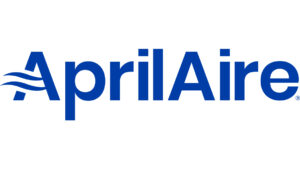
Since inventing the first residential humidifier in 1954, AprilAire has continued to provide the best products for clean, healthy, indoor air for our customers.
Air Purifiers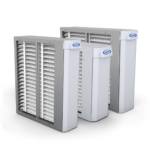
Humidifiers 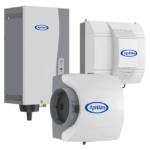
Dehumidifiers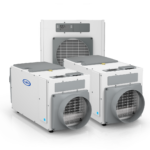
Ventilators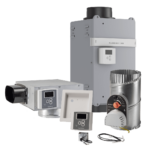
Clean Ductwork
Trust the Indoor Air Quality Experts at Lancaster
We have the expertise to install the right fit for your building, plus the experience to service your system to maintain the air quality that keeps everyone breathing fresh, clean air. Call us at 905-388-3333
Indoor Air Quality FAQs
I have an issue with my “Lancaster” dehumidifier…
We often receive questions and requests regarding these “Lancaster” branded dehumidifiers. Lancaster Heating and Cooling does not manufacture, sell or service these products. We recommend contacting your retailer or manufacturer directly with any questions regarding these dehumidifiers.
Do electronic air cleaners really work?
Electronic air cleaners can greatly improve home air quality and comfort levels. If you suffer from allergies or have pets, they’re a must. Some electronic air cleaners can remove dust particles and pollen as small as .10 microns. Horizon Services offers a variety of air filtration devices.
What is the ideal indoor humidity level?
The American Society of Heating, Refrigerating and Air Conditioning Engineers (ASHRAE) recommends a household humidity level between 30 and 60 percent.
How can I detect carbon monoxide in my home?
The best method of detection is to use a carbon monoxide detector in your home. A carbon monoxide detector is a device very similar to a smoke alarm. It monitors the air for carbon monoxide and sounds an alarm if a specific level is detected. Ideally, you should have one detector adjacent to every living area in your home. Carbon monoxide detectors are most effective when used in combination with preventative maintenance.
How often should I be changing my furnace filter?
There are many variables regarding furnace filters. For example: What type of furnace filter are you using? Do you run your fan continuously? Do you have shedding pets? Have you had any renovations or construction done lately? Since the filter is the best protection for your furnace, our advice is to buy a good filter and check it regularly.
